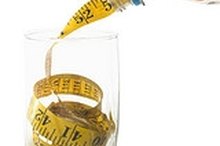Reiki Side Effects
In the field of alternative medicine, reiki is a form of therapeutic healing intended to help bolster the patient's own healing abilities to cure all manner of maladies 5. Although there are typically no side effects involved with reiki, some practitioners warn patients that part of the healing process may involve a detoxifying cleanse that could bring about some unpleasant after-effects 245.
If you are experiencing serious medical symptoms, seek emergency treatment immediately.
Reiki
Reiki originated in Japan, and is based on the belief that practitioners can tap into a universal energy that can be channeled into the body of the patient. According to the National Center for Complementary and Alternative Medicine, a reiki healer will place his hands either slightly above or lightly upon the patient's body to direct this energy to the areas where healing is required 15. The energy is intended to increase the body's innate ability to heal itself.
Cleansing
What Is the Difference Between Reiki & Quantum Touch Therapy?
Learn More
On the Indigo Moon Reiki website, reiki master Andrew J. Gallagher claims a patient's body will work very hard to heal itself after reiki therapy 2. In fact, the body may try to accomplish this healing by cleansing its organs and tissues of toxins. If this happens, Gallagher cautions that the patient may experience such side effects as an upset stomach, indigestion, diarrhea or headaches, although these effects should only last for a day or two after treatment. On the other hand, the website of the India-based Academy for Reiki Training and Healing claims that reiki is a nonintrusive method of healing that has no side effects, other than the possibility that some patients may feel so calm and relaxed after treatment that they'll become sleepy 234.
Attunements
The Reiki Chain website, however, cautions that patients who undergo a reiki "attunement" will experiencing a cleansing period ranging from one to three weeks in duration. In an attunement, the healer will open the patient's chakras to provide her with the ability to receive energy all by herself, without the need of a reiki practitioner. During this time, the body will detoxify itself of toxins that have built up over time, as well as releasing feelings and thoughts that are no longer useful to the patient's health.
Criticism
The Disadvantages of Reiki
Learn More
The website of New York-based Vaughter Wellness points out that another possible side effect of reiki is that the patient may develop a psychological dependency on the reiki healer, despite the fact that there is no scientific evidence that reiki — which the site calls a "scam, perpetrated by hoaxters" — actually works 4. On Dr. Stephen Barrett's medical myth-busting website Quackwatch, his article "Reiki is Nonsense" makes reference to a comprehensive review of reiki research undertaken at the University of Exeter, published in 2008, that concluded there was insufficient evidence that reiki was "an effective treatment for any condition. 6"
Related Articles
References
- National Center for Complementary and Alternative Medicine: Reiki - An Introduction
- Indigo Moon Reiki: Healing Side Effects
- Academy for Reiki Training and Healing: Frequently Asked Questions
- The Reiki Chain: Reiki and Healing Attunements
- Quackwatch; Reiki is Nonsense; Stephen J. Barrett
- Pohl M, Szabo FJ, Shiode D, Hunter R. Pain Recovery: How to Find Balance and Reduce Suffering from Chronic Pain. Las Vegas, Nevada: Central Recovery Press; 2009.
- Rand WE. An Evidence-Based History of Reiki. Southfield, Michigan; ICRT Publishing September 3, 2015.
- McManus DE. Reiki is better than placebo and has broad potential as a complementary health therapy. J Evid Based Complementary Altern Med. 2017;22(4):1051-7. doi:10.1177/2156587217728644
- Singg S. Use of Reiki as a biofield therapy: An adjunct to conventional medical care. Open Access Text. 2015:1(3):54-60. doi:10.15761/CCRR.1000121
- Joyce J, Herbison GP. Reiki for depression and anxiety. Cochrane Database Syst Rev. 2015;(4):CD006833. doi:10.1002/14651858.CD006833.pub2
- Thrane S, Cohen SM. Effect of Reiki therapy on pain and anxiety in adults: an in-depth literature review of randomized trials with effect size calculations. Pain Manag Nurs. 2014;15(4):897-908. doi:10.1016/j.pmn.2013.07.008
- Powers L. Reiki: Level I, II and Master Manual (1st Edition). Scotts Valley, California; CreateSpace Independent Publishing Platform; 2016.
- Radin D, Schlitz M, Baur C. Distant healing intention therapies: An overview of the scientific evidence. Glob Adv Health Med. 2015;4(Suppl):67-71. doi:10.7453/gahmj.2015.012.suppl








